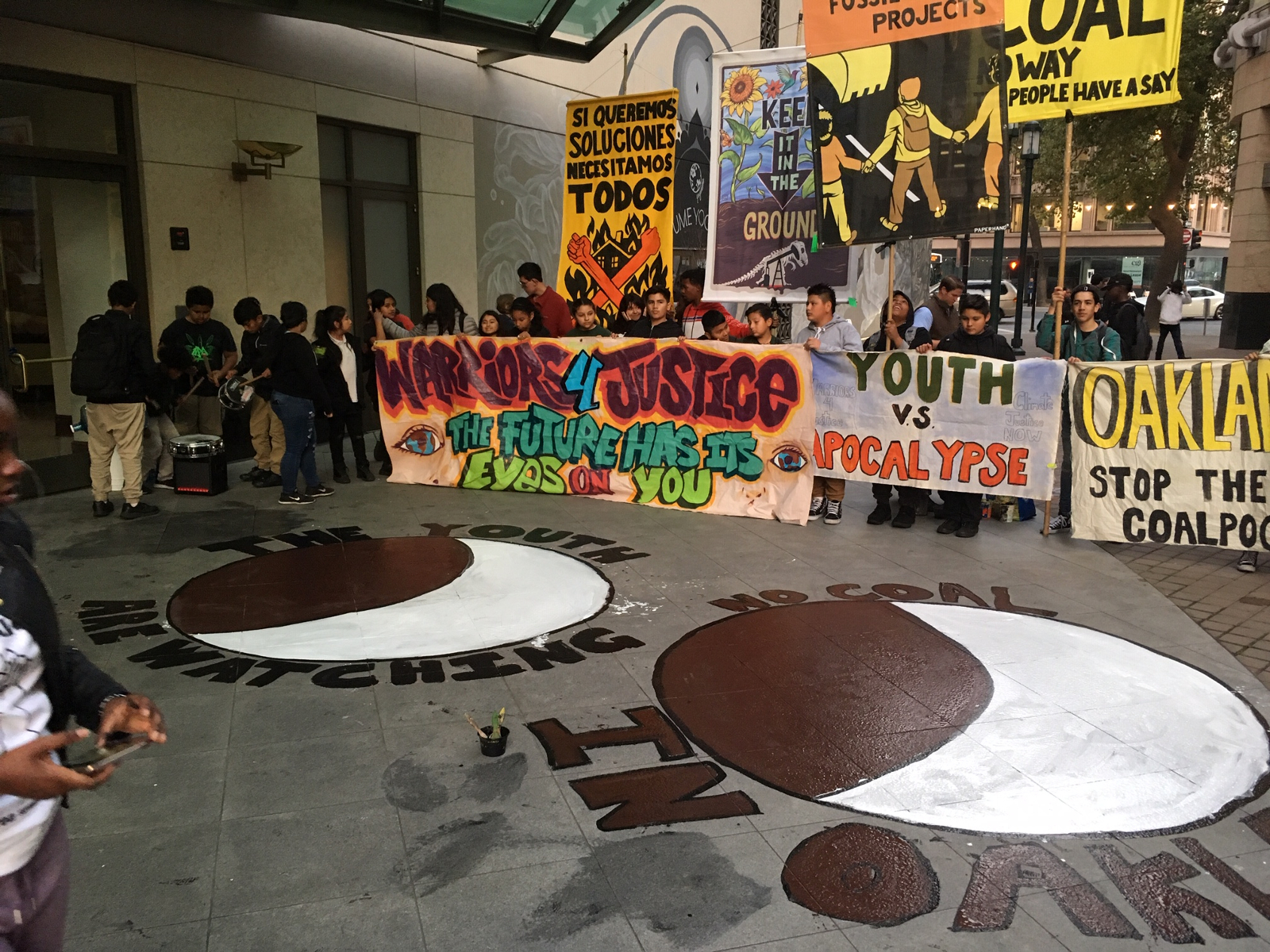So-called “Oakland Protocol”: a coal industry falsehood and farce
On Halloween, the Oakland Post published an alarming article about efforts by longtime coal industry executives to revive plans for a coal terminal in West Oakland. No Coal in Oakland contacted the newspaper’s publisher, and was given an opportunity to respond to misstatements of fact and omissions in the article that appear to be part of a concerted plan to lobby key community leaders to overturn the city’s coal ban, as reported by Darwin BondGraham in a Guardian article just a week before.
In the October 31 Post article, Insight Terminal Solutions (ITS), would-be operator of the proposed Oakland Bulk and Oversized Terminal, touted its plan to “phase in a ban on the transportation” of coal. More accurately, the plan — which ITS has dubbed its “Oakland Protocol” — remains to introduce coal into Oakland. ITS would replace the city’s ban with a twenty-year period during which millions of tons of coal would be shipped through the city. ITS’s “92% reduction” of coal shipments as spun in the Post article is a falsehood and a farce.
Reading the fine print, ITS’s “plan” is for coal to be the terminal’s anchor commodity with up to 50 million tons of coal shipped in the first decade alone. ITS says, “The phase out gives ITS time to supplement and then replace coal with a variety of bulk commodities from grain, to soda ash, to wood chips, and others,” without explaining why they can’t just start with these other commodities. Perhaps this is enough time for the coal industry and their local enablers to make easy money before saddling the City of Oakland with a filthy “stranded asset” (the coal-contaminated OBOT facility) and cutting out on the lease.
The Oakland City Council, No Coal in Oakland, the Sierra Club, San Francisco Baykeepers, and thousands of Oakland residents have not opposed construction of a new export terminal—but will never support a terminal that ships coal.
ITS is the successor to Terminal Logistics Solutions (TLS), the company originally contracted to operate OBOT. Court filings revealed that TLS was a wholly owned subsidiary of a coal company (Bowie Resource Partners, renamed Wolverine Fuels). ITS is also a front for the coal industry. The two principals of ITS, John Siegel and James Wolff, are former high-level executives of Bowie and longtime coal industry hands, so their continued focus on coal is not surprising.
Currently, ITS is in bankruptcy, like other coal companies as the coal industry slinks down its bumpy path to oblivion. Just last week, the country’s largest underground coal company, Murray Energy, filed for bankruptcy, the eighth coal company to seek bankruptcy protection in a year. As renewable energy becomes more affordable and climate concerns more urgent and pervasive, the future of coal is bleak and ITS is desperate to salvage the effort to squeeze a few more years of profit out of Utah coal mining operations by shipping that state’s coal to Asia via an Oakland terminal. Indeed, their proposed “phase-out” is probably a recognition that coal is unlikely to have any market in twenty years.
ITS refers in its most recent sales pitches to a “state of the art,” “first-of-it-kind” facility. It claims it would rely on covered rail cars—which might sound good until ITS’s intended marks realize that these do not exist for coal transport, probably because they have not proven effective in eliminating coal shipping’s collateral pollution; and because coal dust contained in covered rail cars could cause them to burst into flames. ITS’s claims about jobs also merit a closer look. Construction jobs will be needed to build OBOT whether it is built as a coal terminal or a multi-commodity terminal. ITS states in the Post that the project would create 150 long-term union jobs. This boast is inflated two and a half times from the figure developers projected in their 2012 filing of environmental impact documents.
ITS also raises the specter of bankruptcy for Oakland because of liability to OBOT. But there is no claim for damages in the federal lawsuit OBOT brought against the city. The federal court ruling that overthrew application of the city’s ban on coal to OBOT is on appeal. A separate case filed by OBOT in state court does claim damages, but that case is stalled in a technical appeal challenging whether it can go forward at all. It is too soon to conclude that Oakland will be held liable for any damages.
Image: Youth vs Apocalypse mounted an emergency action at Oscar Grant Plaza on 7 Nov 2019 in response to revelations that coal company executives are trying to lobby and buy off members of the African American community in their attempt to poison Oakland with a toxic coal terminal. Photo credit: Francesca Cunningham.
